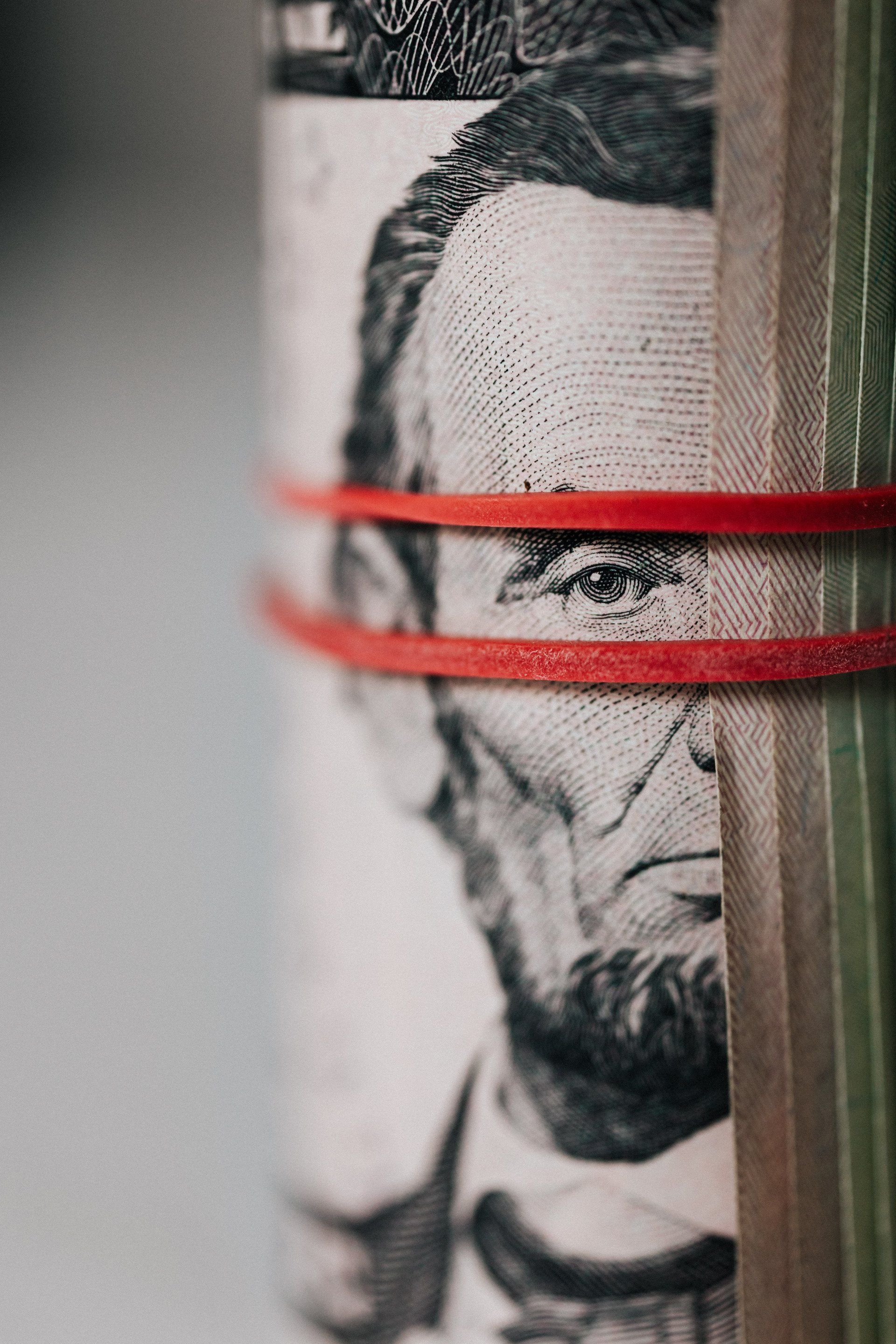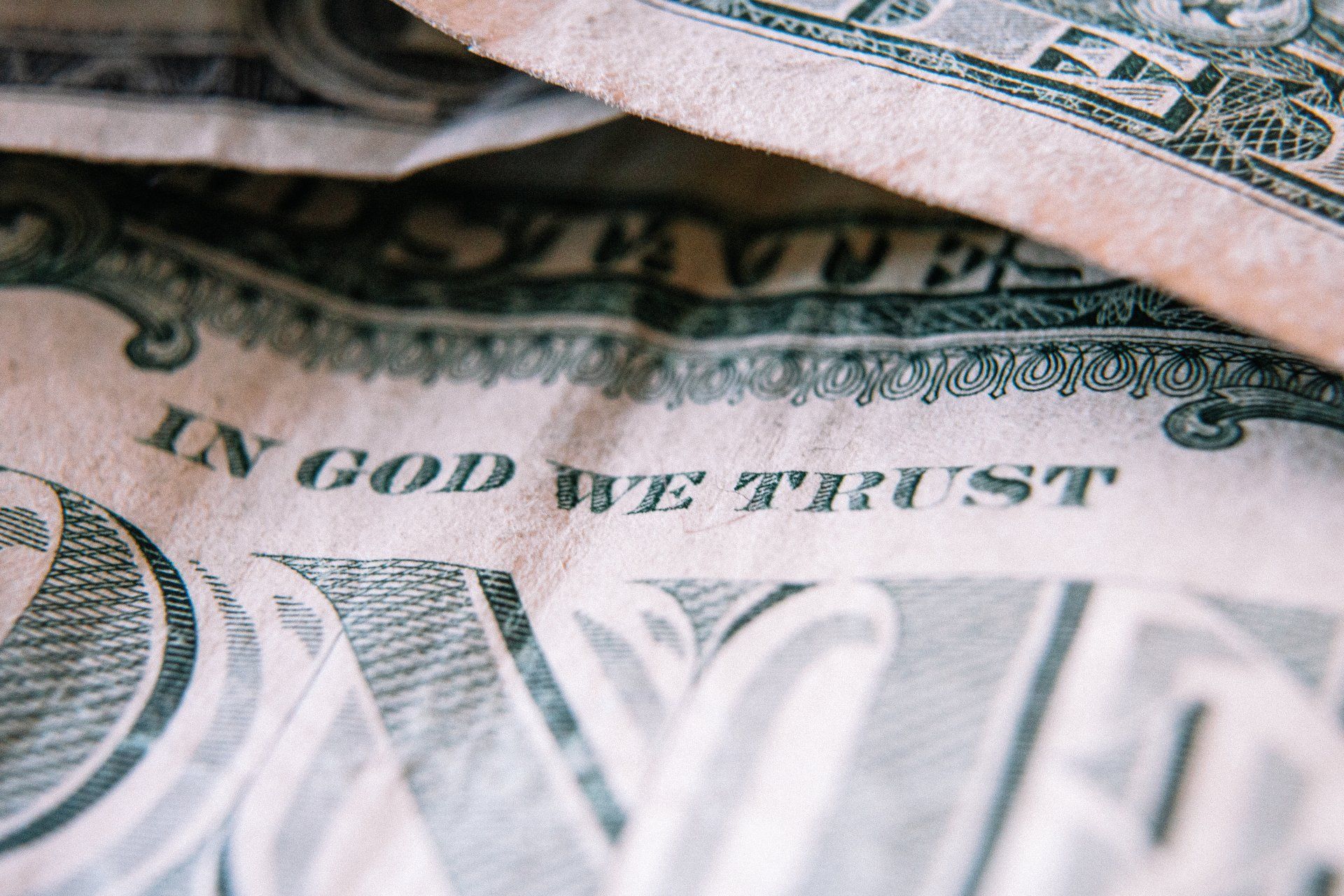The Freedom of Money
Written by
In this blog, we discuss the Freedom of Money by answering the question, "What should the goal of building more assets be?” Did you know that you have more assets in your life than just your financial assets? We'll cover the four categories of assets in your life and address this question from a deeper perspective.
Jeff Huston, the Founder/Owner of 3D Money, has a podcast called the Jeff Huston Show — a nonprofit platform dedicated to coaching and inspiring you on your journey towards freedom!
On The Jeff Huston Show, we talk about ways you can increase your freedom of time, money, relationships and purpose. In today’s blog, we’re going to talk about money; which is a topic that has numerous potential land mines awaiting because we all have different experiences with money — we were raised differently and have different paradigms. Money can be a very stressful thing in our lives and can produce potential conflict in our relationships.
We received a question from John in Florida, who asked, “I know we all need money, and I’ve seen it do some good things. But I’ve also seen some destructive sides to it. What should the goal of building more assets be?”
This is an insightful question and caught my attention because on the surface I think it can seem very basic. When on a deeper level, there’s a lot more to unpack. I don’t know John’s faith background, but many of our readers (or listeners of our podcast) are God followers, as I am, and if his question is coming from that standpoint, I can really see where there can be a struggle with this.
In Psalm 62:10 it says, “...though your riches increase, do not set your heart on them.” So the danger is in setting our heart on riches and material things. We’re also warned in 1 John 5:21, at the very end of the chapter, “Dear children, keep yourselves from idols.” But I never really thought that applied much to me. I don’t have graven images or carvings of physical idols in my household. I don’t have anything like that to worship or admire. But when I read that verse in the New Living Translation, it came alive to me. It reads, “Dear children, keep away from anything that might take God’s place in your hearts.”
See, idols are not just about graven images. An idol is anything that takes God’s place in our hearts. So I think the danger of money, if I’m reading into the question that John asked is: What should the goal of accumulating assets in light of Psalms telling us not to set our heart on those things? How do we filter all of that as God followers in light of accumulating wealth?
To start, I’d like us to think a little differently about assets. A number of years ago I was introduced to this idea by Lee Brower with Empowered Wealth. If I were to ask you to list all your assets, you might think, “My investments are worth this much, and I have this much money in these bank accounts, I have some real estate with some equity, and I have a business that has value, etc.” More than likely, you’re going to list out all your financial assets. And I would agree, those are assets.
But I would also like to propose that we have other assets that we don’t often think about. We don’t take time to recognize most of these other assets though. What I would like to suggest is that we think of our assets in four different categories, or quadrants.
The first category is what I’m going to call our Core Assets: our relationships, health, values, integrity, worldview, faith, belief system, etc. Those are all at the core of who we are, and those are in fact assets.
The second category is our Educational and Experiential Assets. So if you went to college and have a college degree, that would be an asset. You’ve also had experiences in your life, good experiences and bad experiences — personally, I’ve learned more from the bad experiences than the good experiences. I like this quote from Hellen Keller, “A bend in the road is not the end of the road unless you fail to make the turn.” How do we make the turn? We make the turn when we adapt to the mistakes or the curve balls life has sent our way. There’s a question I love to ask people, “When did you complete your education?” Well, of course the right answer to that is “I never have and I never will!” We should strive to be life-long learners. Living wisely is really the goal. Our life education and our life experiences help us to live wisely.
The third category is Charitable or Community Assets. These are things that we contribute to that are outside of us, they’re bigger than us: things that we participate in or volunteer our time for. How do you live out your faith? In the Bible, the writer of James says we have to take action in what we believe. These actions in regards to our community are also assets.
And then we have Financial Assets, which include the things discussed earlier: bank accounts, investments, real estate, business interests, etc.
So here’s my question for you, if you wrote down a list of all of the things that you value in each of those categories or quadrants, what would they be? Now, those are your assets, that’s really your net worth. Your net worth isn’t just financial assets minus liabilities. It’s a sum total of all those things in each of those quadrants that are important to you.
Let’s say that I waved a magic wand and everything in those quadrants disappeared. You’re bankrupt in the true sense of the word. You don’t have your health, you’ve lost all your relationships, you don’t have your faith, finances, or any of your other assets. It’s ALL gone.
Now, let’s say out of the goodness of my heart, I wave my wand and let you pick one of the four quadrants to have back. Which quadrant would you choose to get back first? My guess is if you’re like most people, you’re going to choose your Core Assets. That makes sense. Let’s go one step further.
I’m going to wave my magic wand again and give you one more quadrant back, but only one! Which one would you choose? Well from my experience, when I’ve done this with people, most people choose their Educational and Experiential Assets in life. Why is that? Because if you have your Core Assets and my Educational and Experiential Assets, you can rebuild your Financial and Charitable/Community Assets.
We started out this blog talking about money and accumulating assets. John’s original question was, “What should the goal of building more assets be?” Well, if we view our assets as just piling up more money, then we’re missing what (I think) life should be about. Isn’t it interesting that we started talking about financial assets and yet financial assets didn’t even make the top two categories of assets if everything is stripped away.
Finances, as we all intuitively know, isn’t the most important thing in life, but it is important. If I go back to John’s question, if I think more globally about assets, the goal of accumulating more assets is to live wisely and to live better.
Click below to listen to the entire Jeff Huston Podcast about the Freedom of Money.



